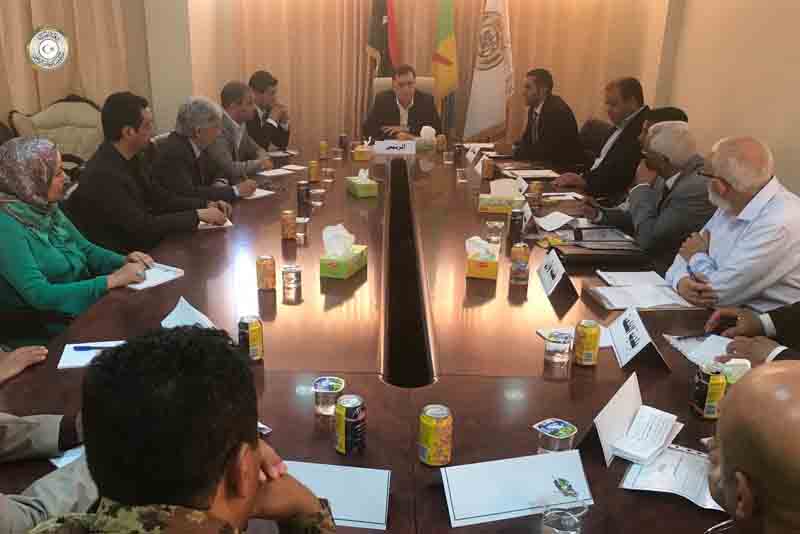By Libya Herald team.
Tunis, 3 August 2017:
The talks in Cairo between a delegation of top political figures from Misrata and representatives from eastern Libya who support the Libyan National Army and Khalifa Hafter has drawn conflicting responses from the participants and the Egyptian authorities who organised them.
The Egyptians are reportedly satisfied with the talks which concluded in the small hours of Thursday morning. They are quoted as saying that the atmosphere was positive and that progress was made.
The Misratans too are said to be pleased with the proceedings. However, sources close to the eastern delegation which had come under heavy Egyptian pressure to talk to the Misratans, said that they were unhappy with the whole process. Initially they had refused.
There was, though, agreement on an number of uncontroversial topics: Libya’s unity and sovereignty; national reconciliation; support for a modern, democratic state of law; the need to rebuild state institutions and to fight terrorism, extremism and crime; opposition to excluding or marginalising any Libyans regardless of their view or who they support; the rejection of foreign interference; and the importance of providing compensation to all who had suffered as a result of the revolution and since.
More importantly, according to the Egyptians, there was also agreement that one of the first steps that needed to be taken for national reconciliation to happen was that all internally displace people be allowed to return home.
Its acceptance was something of a compromise for both sides. There is a significant number of refugees from Benghazi in Misrata and elsewhere in the west of the country whom others in Benghazi would prefer did not return. Similarly, although Misrata has agreed in principle that the Tawerghans should return home, it is widely seen as having in fact done everything to prevent it from happening.
Equally important, it was agreed that there should be further meetings between the two groups.
However, there are reports that Hussein Al-Agouri, the head of the eastern delegation, wanted to put a number of conditions as the price of reconciliation – conditions that would be almost impossible for the Misratans to accept. These included:
- Misrata must recognise that what happened in Benghazi as a war between the legitimate Libyan armed forces and terrorism;
- Misrata must apologise for supporting terrorist groups;
- Misrata must recognise the legitimacy of the House of Representatives and the leadership of the Libyan National Army;
- Misrata must free those captured by militants during the Benghazi clashes and transferred to Misrata;
- Misratan authorities must stop supporting any terrorist groups, dissolve all militias operating outside the law and hand over heavy weaponry to the military;
- Misratan authorities must hand over terrorists who fled Benghazi, including the Benghazi Revolutionary Shoura Council and the Benghazi Defence Brigades;
- The next meeting must be held in Benghazi, in the presence of the Egyptian authorities, to ensure implementation of the above conditions.
The Egyptians appear to have prevented Al-Agouri’s tough demands being put.







